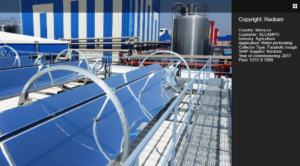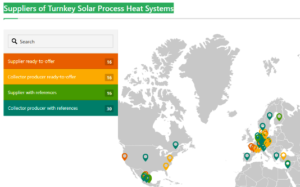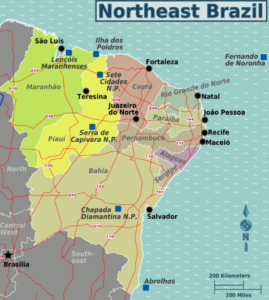CBENS to discuss solar heat for industry
February 12, 2018
 Brazil’s solar energy association ABENS has invited about 500 experts to the solar energy conference CBENS taking place from 17 to 20 April 2018 in Gramado. This year’s event, held in the south of the country, offers a round-table discussion about solar heat for industrial processes, or SHIP for short, to raise awareness among technicians, researchers and future professionals of a technology that many in Brazil know little about.
Brazil’s solar energy association ABENS has invited about 500 experts to the solar energy conference CBENS taking place from 17 to 20 April 2018 in Gramado. This year’s event, held in the south of the country, offers a round-table discussion about solar heat for industrial processes, or SHIP for short, to raise awareness among technicians, researchers and future professionals of a technology that many in Brazil know little about.Arno Krenzinger, Professor at the Universidade Federal do Rio Grande do Sul and chairman of CBENS 2018, explained: “Several graduation courses for energy engineers were designed in Brazil, so that young graduates can learn at college how to use SHIP technologies in their projects.”
The aim of CBENS, which takes place every 2 years, is to bring together Brazil’s solar community, including students, researchers, members of NGOs, entrepreneurs, manufacturers and traders. According to Krenzinger, CBENS 2018 would have around 200 speakers in six parallel sessions and another 200 papers would be presented in poster sessions. This year had seen the submission of 4 times more abstracts on photovoltaics than on solar thermal, whereas 15 years ago, solar thermal had been the clear favourite.
When asked why there were so few SHIP demonstration plants in Brazil, Krenzinger pointed to the high interest rates in the country. “The cost of implementing industrial heat production based on wood, gas or other sources is far lower than the initial investment in solar heat technologies,” he added. “The high interest rates mean that the initial investment in solar thermal cannot be compensated for by the money saved on fossil fuels once the system is in operation.”
CBENS’ round-table discussion about SHIP was thought to give greater visibility to the technology in science, Krenzinger said. According to him, vital SHIP research fields were:
- Improved materials for selective absorber surfaces
- Methods for remaining vacuum in evacuated tube collectors
- Materials showing different melting points
- Resistant, reflective and self-cleaning surfaces for concentrating collectors to avoid dust deposition
ABENS was founded in 1978. Its main objectives have been to promote and support studies about and the deployment of solar systems in Brazil. 2018 will already be the seventh time the CBENS conference has been organised by ABENS.
Organisations mentioned in this article:
ABENS: http://www.abens.org.br/
This article was written by Leticia Sother, a Belo Horizonte-based freelance journalist who holds a bachelor’s degree in architecture.


